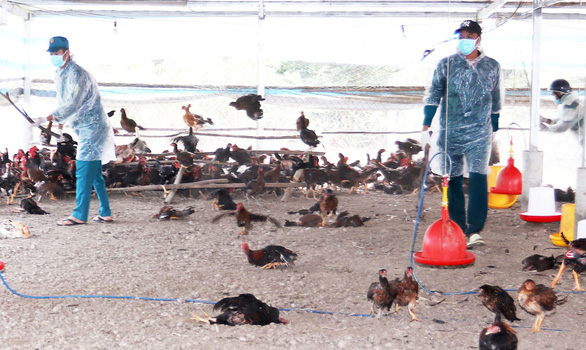The General Department of Preventive Medicine under the Vietnamese Ministry of Health on Saturday issued an urgent directive urging enhanced measures for preventing and controlling avian influenza transmission to humans following the first recorded case of human infection with influenza A(H9) virus in the country.
Since March 10, a 37-year-old man residing in Chau Thanh District, located in the Mekong Delta province of Tien Giang, experienced fever symptoms and self-medicated irregularly, according to the general department.
On March 16, the patient sought treatment at the Hospital for Tropical Diseases in Ho Chi Minh City, where he was diagnosed with severe pneumonia suspected to be viral in origin.
Initial tests at the hospital revealed positivity for influenza A, with gene segments resembling those of influenza A virus subtype H9.
Samples were sent to the Ho Chi Minh City Pasteur Institute for confirmation testing.
On April 1, the Pasteur Institute confirmed influenza A subtype H9.
Further tests are ongoing to determine the subgroup.
The patient is currently receiving treatment.
Epidemiological investigation revealed the patient’s residence is near a poultry market, though there have been no reports of sick or dead fowl in the area.
Close contacts of the patient are being monitored, with no respiratory infection symptoms detected among them nor any clusters recorded in the community.
“This marks Vietnam’s first case of influenza A(H9) in human,” stated the General Department of Preventive Medicine.
“Previously, in March 2024, a fatality from influenza A(H5N1) was reported in Khanh Hoa [a province in south-central Vietnam].
“Since 2015, the Western Pacific region has recorded 98 cases of influenza A(H9N2) in humans, resulting in two deaths, both in patients with underlying conditions.
“There is currently no evidence of human-to-human transmission of influenza A(H9N2).”
The general department urged Tien Giang Province’s health department and the Ho Chi Minh Citys Pasteur Institute to investigate the infection source, manage clusters, enhance surveillance, and prepare necessary resources.
Globally, avian influenza cases have risen since late 2023, posing risks to both poultry and mammals.
While avian influenza A(H9N2) is considered a low-virulence strain and only causes mild symptoms in poultry, humans may still contract it through contact with infected birds.
With changing seasons and weather patterns facilitating pathogen development, the Ministry of Health warns of ongoing risks of avian influenza transmission to humans.
Like us on Facebook or follow us on Twitter to get the latest news about Vietnam!




















































